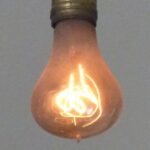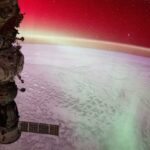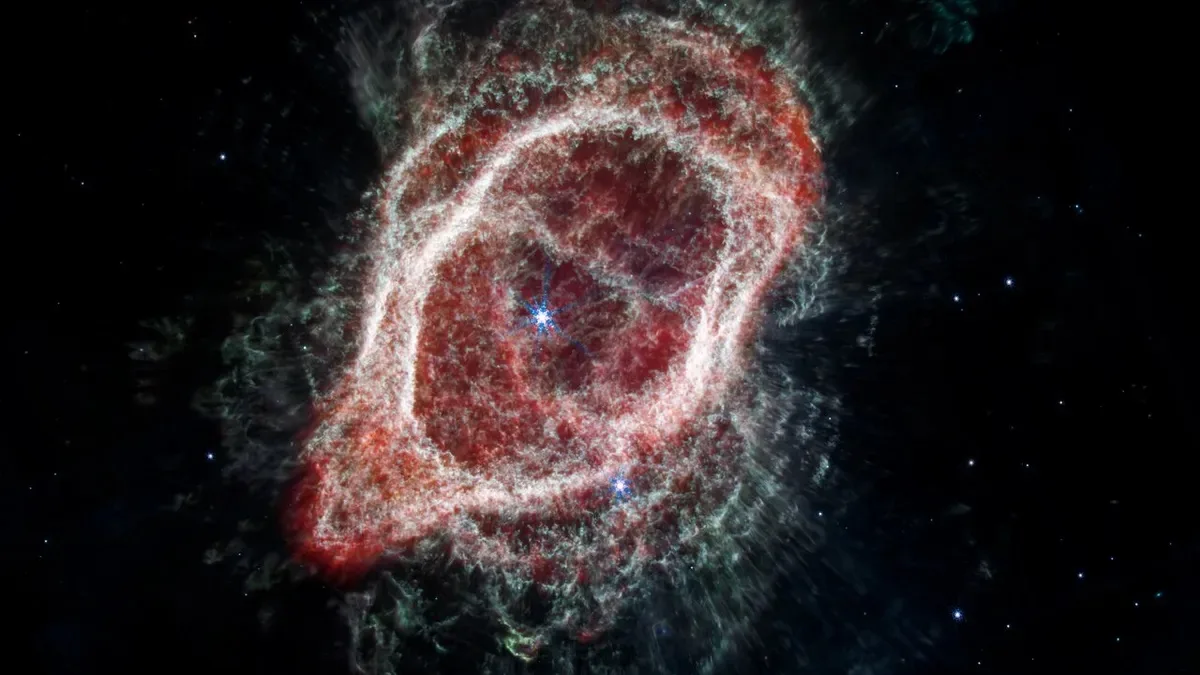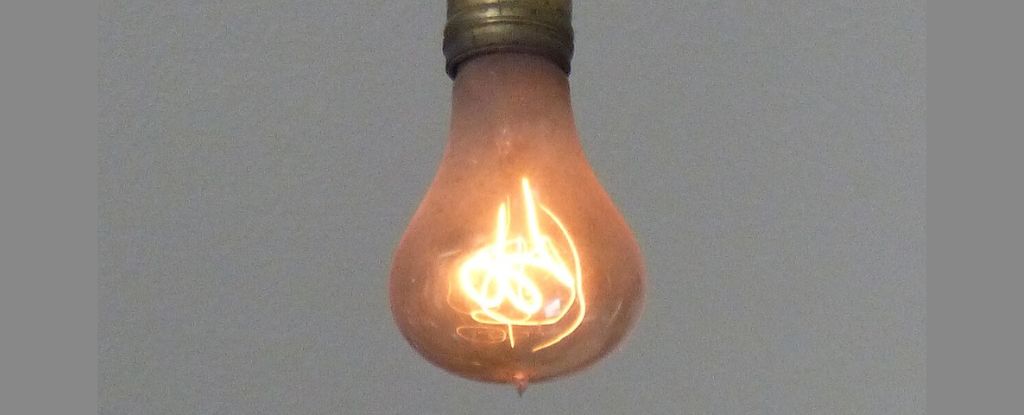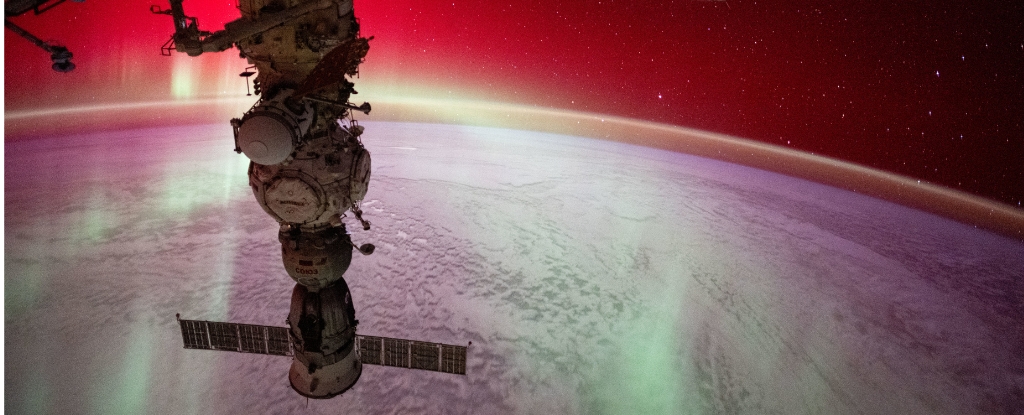– Scientists using the James Webb Space Telescope and the Submillimeter Array telescope have discovered a previously hidden double ring structure within the planetary nebula known as the Southern Ring Nebula.
– James Webb Space Telescope images revealed the molecular hydrogen that makes up the nebula’s “exoskeleton.” Additional observations with the SMA detected carbon monoxide gas, allowing a 3D map of the nebula to be created.
– The 3D map surprisingly showed the Southern Ring Nebula has two nested rings oriented perpendicular to each other, not just one as its name implies.
– The findings suggest the nebula was formed from interactions between a triple star system, with one star ending its life to form the nebula and jets from a close binary system shaping its structure.
– A more distant third star may have caused precession of the jets, carving out the secondary ring. The discovery could prompt astronomers to re-examine other ring nebulae.
– Planetary nebulae are important as they spread heavier elements created by dying stars back into interstellar space, enabling the formation of new stars and planets.
Source: LiveScience

